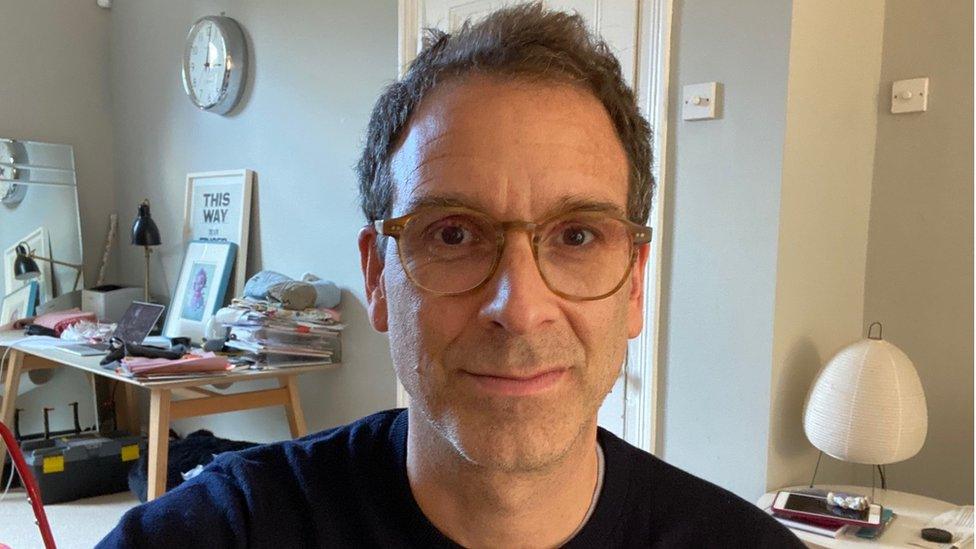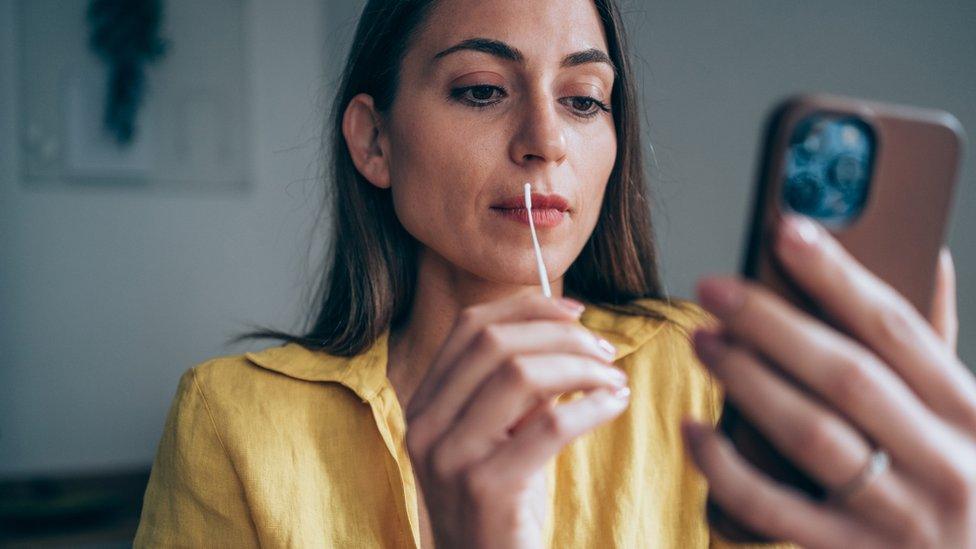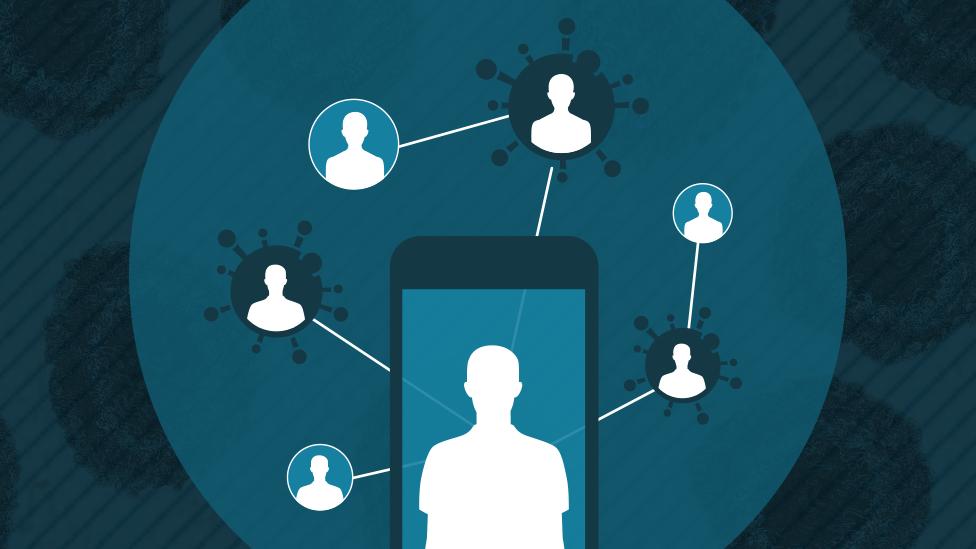'We had more than 60 calls from test-and-trace'
- Published

Martin Usborne's family spent a lot of time in isolation answering phone call after phone call
Two weeks ago, Martin Usborne, a publisher who lives in east London, found out a close family contact had coronavirus. A few days later his wife, Ann, and their one-year-old daughter, also tested positive.
From that moment on, Martin says his wife's phone would not stop ringing. Over the course of 10 days, Ann had 30 separate calls from NHS Test and Trace that she managed to pick up. On top of this were another 27 calls that were missed. And then there were the half a dozen calls her husband received.
"At one point she would finish one call and as soon as she put the phone down - literally seconds later - another contact tracer would ring. And as soon as that call was over, test-and-trace would call my phone.
"This really was not the easiest situation to deal with, particularly while looking after our two small children," Mr Usborne told the BBC.
Some calls were made because Ann had been in contact with the family acquaintance, who works in her home, while others were to tell her that her young girls (one and three years old) had been near the same person.
'Dog with the wrong bone'
Next came the calls because Ann had tested positive, calls because her little one had tested positive and then calls to alert her older toddler that she had been in contact with someone else one who had the virus (this time her mother).
The family understands some of these calls were necessary and is keen to stress that everyone they spoke to was kind and considerate and did their job well, but Mr Usborne is very concerned there has been a significant waste of resources.
"The majority of calls were long and repetitive, with different callers reading out the same script each time, asking the same questions and giving the same answers," he says.
And the family say when they told contact tracers they had heard the exact same thing several times already, the callers apologised but said they would have to complete the entire phone call or it would not register and someone else would simply ring again.
Mr Usborne told the BBC: "Essentially we were dealing with a broken excel spreadsheet, personified by a very nice person.
"In a way it was quite impressive as they were really persistent - but it was like a dog who had got the wrong bone."
Later in the week, calls from contact tracers became more helpful, with some checking the family were OK and giving them information on when their isolation would end.
But Mr Usborne says they received conflicting advice about how long they had to remain at home. The NHS Covid-19 app recommended his wife stay indoors a few days longer than contact tracers suggested, for example.
He added: "The people were super-nice about it but one contact tracer admitted they worked on a different system to the app and would continue to use theirs. Which one is right?"
'Losing trust'
They are now not quite certain when exactly it is safe to go out and are isolating for the longest suggested time. And, more crucially, they say they are not sure if they can trust the advice at all.
The family feels there needs to be a lot more done to join up the dots, so that contact tracers are alerted if someone has already been called and the system recognises when callers have already spoken to parents or carers responsible for small children in the same household.
Mr Usborne also feels there should be a way for the hard-working humans on the other end of the phone to override the computer system if a family tells them they have received multiple, repetitive calls, all week long.

TESTING: How do I get a virus test?
YOUR QUESTIONS: We answer your queries
TREATMENT: How close are we to helping people?
EPIDEMIC v PANDEMIC: What's the difference?

According to the Department of Health and Social Care, NHS Test and Trace has reached a total of 901,151 people since it was started.
The first week of October saw the service successfully reach 76.8% of people who tested positive and 76.9% of contacts where communication details were provided.
But there have been issues over the time taken for test results to be returned.
'Duty to self-isolate'
And the system had its worst week for reaching close contacts who were not in the same household as the person testing positive. Just 62% were reached in the week to 7 October, down from 67% the week before.
In the same week, the number of people transferred to test-and-trace more than doubled, to 88,000.
A spokesperson said the government's test-and-trace programme "is working hard to break chains of transmission, with over 900,000 people who may otherwise have unknowingly spreading coronavirus contacted and told to isolate".
"We all have a crucial part to play in keeping the number of new infections down, which is why there is now a legal duty to self-isolate, and steps have been taken to make sure that people are complying with the rules."
- Published3 May 2022

- Published5 August 2021
